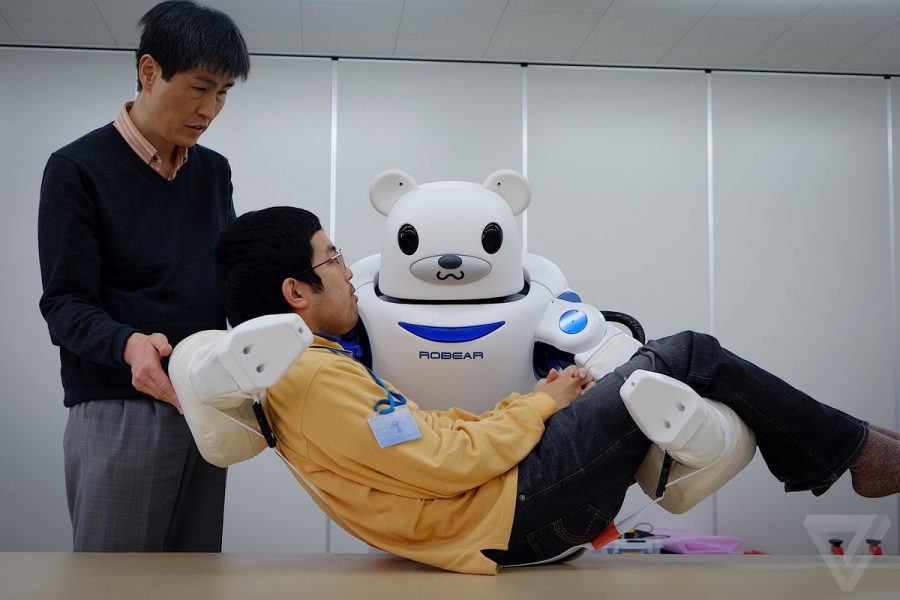Technology
Think about your friends for a second. What are their best qualities? Maybe they’re kind or patient or intelligent, but they’re probably not programmable. At least, not yet.
The normalization of computers as companions may strike you as wrong, but that instinct hasn’t hindered the soaring development of social robots: Pibo, a robot from Korea, is joined by Buddy from France, Aido and Robear from Japan, Furhat from Sweden, Lynx from China, Cognitoys from the U.S., Miko from India, AV1 from Norway, and a host of other newly-announced AI acquaintances. An analysis by Mordor Intelligence predicts that the global market will grow from 2 billion dollars in 2020 to 11 billion dollars by 2026. Companies already market social robots as replacements for actual friends. A 2019 study showed that our physiology can’t differentiate a robot’s touch from a human’s.
When managed responsibly, this prospect is not necessarily dystopian. Healthcare helpers like Robear — a large, cuddly android that helps to lift people in and out of beds — will dominate a large sector of the social robot market. Innovations like these could take some pressure off of overwhelmed nurses and create safer patient environments. On the other hand, Camylle Lanteigne, from the Montreal AI Ethics Institute, asserts that hyper-accommodating pseudo-humans might severely stunt our empathy. Technology companies have strong incentives to make their social robots hyper-polite in order to keep customers happy, but AI companions that don’t balk at abuse, harassment, or discrimination could reinforce biases. An even deeper risk lies in the covert narcissism that digital servants encourage. As Noreena Hertz, author of The Lonely Century, explains, “even something as simple as silently negotiating who passes first in a grocery aisle or where to place your mat in yoga class forces us to compromise and take others’ interests into account.” Frictionless digital interaction could unravel our ability to communicate with actual humans.

This struggle already permeates contemporary technology. Social media damages our empathy and rewires our brains at breakneck speeds. Earlier inventions like cars and televisions gave humans time to adapt, but cognitive evolution can’t keep up with the digital age. The behavioral gap between millennials and Gen-Z is larger than any two consecutive generations in history: we care less about independence, maintain fewer relationships, and endure higher rates of depression and suicide. Global teen loneliness is proportional to cell phone usage. These connections aren’t merely correlative. A 2015 study by the Happiness Research Institute proved that even one week of regular Facebook scrolling increases loneliness and anger. Internal studies found that the Instagram app worsens body image for 32 percent of young women. Frances Haugen, the former Facebook employee who exposed the studies, recently launched a series of scathing attacks against Facebook for disregarding consumer health and compared social media monopolies to tobacco companies.
News stories like this one can feel like a broken record. Gen Z has fielded parental critiques of cell phones since the day those same parents bought them (a day that comes earlier and earlier). Teens aren’t blind to this fact — over half of the teenagers polled in a Pew Research study admit to spending too much time on their phones — but recovery is often out of their hands in a world so dependent on technology. Albuquerque Academy requires every student to have a laptop, and social media is a virtual prerequisite to social and professional success, but if we don’t continuously examine the big-picture effects of algorithmic accuracy, humans will fall victim to inventions that sap our empathy, dehumanize others, and perpetuate the very loneliness they claim to correct.
